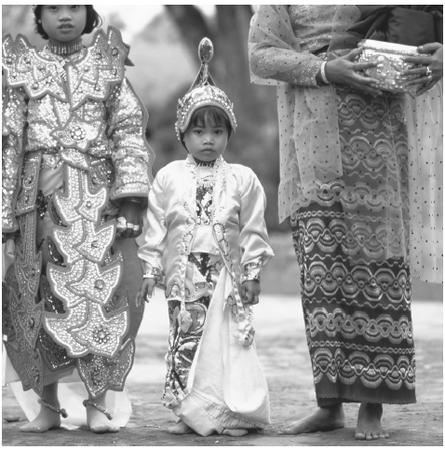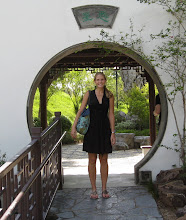I had the distinct privilege of attending a Burmese Culture Night with some of my colleagues this past week. One of my classmates is from Burma and he invited us to another uni in Hong Kong to experience an evening all about Burma. It was a wonderful presentation of photos, information, songs and food. It made me wish for the 1,003,200th time that my home country had more of a distinct culture. It reminded me of being a child in Indonesia. At the international school that I attended, United Nations Day was the biggest holiday (bigger than days such as Halloween or Valentine's day). Students came to school in their national costumes. The mums of the children would cook yummy food from their home country and at lunch there would be a "great hall of food" in the gymnasium and we would sample food from all over the world. I loved and hated that day. I loved it because I loved all the international food and I loved seeing my friends in their costumes and I loved going to the assemblies where national dances would be performed. But I hated being me on that day for while everyone else had terrific national costumes, I had a tshirt from Old Navy with a US flag on the front, and one year I wore a man's tie with the American flag printed on it. What a terrible national dress. There are so many wonderful things about my home country...the freedom and relative tolerance of religions and beliefs, the whole melting pot concept, the opportunity....but as a 10-year old at school...I wanted to be from a country with a long rich history and a national costume. I suppose that will never happen, but now, 16 year later...I'm ok with that. I can travel the world, live for long periods in other place, and learn about other countries and appreciate their culture and custom and hope someday, many years from now, my country will have a lengthy culture so that a little girl may wear her national costume proudly (and leave the flag tshirt at home on UN Day).
Below is a song that I heard at the aforementioned culture night. It sounded lovely in Burmese, but the English translation is also beautiful:
Let's make the world beautiful
(1) How majestic are the rivers, the valleys and the mountains
Teeming with sweet and colourful flowers
Making the whole world look beautiful
(2) Though we are entrusted with the task to maintain its beauty
Our misdeeds make the world ugly
Now where are love and kindness
(3) Many plants and flowers have withered in the scorching sun
But let's take the task of a gardener
And let's revitalise and beautify the world again
Chorus:
People are hungry, they thirst for love
People are mourning and perishing in the darkness
They are dying in wars of hatred
Now our world has become ugly
Let's revitalise and beautify the world again.
- I want to thank my colleague for sharing part of his culture with me for an evening.
 from:http://www.everyculture.com/Bo-Co/Burma.html
from:http://www.everyculture.com/Bo-Co/Burma.html





